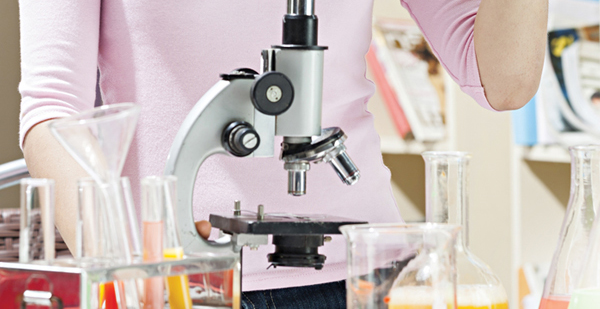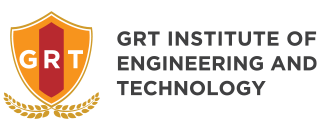
Biomedical engineering is a field that integrates Medical science and Engineering. The branch integrates physiology, anatomy, pathology, mathematical and computational sciences with engineering principles. Biomedical Engineering deals with the application of electronic, pneumatic and mechanical instruments in medical science applications. This field seeks to bridge the gap between engineering and medicine.
The bachelor’s course on Biomedical Engineering in this Institute was started in the year of 2014 with an intake of 60 students. This course covers the basic understanding of Human Anatomy and Physiology, Biochemistry, Pathology & Microbiology, and Medical Physics in life sciences. This course focuses on the fundamentals of the Electronics and Instrumentation required for designing medical instruments which ensures better health care. The fundamentals of biomedical signal and image processing, role of computers in medicine and the application of computational intelligence in medical science such as Pattern Recognition & Neural Networks are also a part of the academic curriculum in this course. Imparting knowledge in the field of Biomaterials & artificial organs, Biocontrol systems & Rehabilitation Engineering is an essential part of this course.
This course also imparts training to the students for overall design, maintenance and installation of medical instruments. This course aims to strengthen the manpower in the area of Biomedical Engineering, thus forming a bridge between Engineering and Medical streams for Research & Development and also the regular practices.
Vision & Mission
Department Vision
To create an academic excellence in the field of Bio-Medical Engineering through innovative research and inculcation of relevant technical skills to make the students to be efficient professionals for serving the medical industry and the society.
Department Mission
M1: To equip the students with indispensable Bio-Medical Engineering knowledge for qualitative analysis in the relevant field.
M2: To provide technical training to the students for serving medical industry.
M3: To create indigenous professionals in the field of Bio-Medical Engineering with strong expertise.
M4: To serve the society through the innovative contributions of Bio-Medical Engineers with collaboration
of medical fraternity.
Program Educational Objectives (PEOs)
PEO1: To develope the graduates to demonstrate their skills in solving challenges in their chosen field through the mathematics, engineering and clinical science to deal with the medical sector.
PEO2: To enable the graduates to exhibit leadership, make decisions with societal and ethical responsibilities, function and communicate effectively in multidisciplinary settings.
PEO3: To ensure that graduates will recognize the need for sustaining and expanding their technical
competence and engage in learning opportunities throughout their careers.
Program Outcomes (POs)
PO1: Engineering knowledge: Apply the knowledge of mathematics, science, engineering fundamentals, and an engineering specialization to the solution of complex engineering problems.
PO2: Problem analysis: Identify, formulate, review research literature, and analyze complex engineering problems reaching substantiated conclusions using first principles of mathematics, natural sciences, and engineering sciences.
PO3: Design/development of solutions: Design solutions for complex engineering problems and design system components or processes that meet the specified needs with appropriate consideration for the public health and safety, and the cultural, societal, and environmental considerations.
PO4: Conduct investigations of complex problems: Use research-based knowledge and research methods including design of experiments, analysis and interpretation of data, and synthesis of the information to provide valid conclusions.
PO5: Modern tool usage: Create, select, and apply appropriate techniques, resources, and modern engineering and IT tools including prediction and modeling to complex engineering activities with an understanding of the limitations.
PO6: The engineer and society: Apply reasoning informed by the contextual knowledge to assess societal, health, safety, legal and cultural issues and the consequent responsibilities relevant to the professional engineering practice.
PO7: Environment and sustainability: Understand the impact of the professional engineering solutions in societal and environmental contexts, and demonstrate the knowledge of, and need for sustainable development.
PO8: Ethics: Apply ethical principles and commit to professional ethics and responsibilities and norms of the engineering practice.
PO9: Individual and team work: Function effectively as an individual, and as a member or leader in diverse teams, and in multidisciplinary settings. 2
PO10: Communication: Communicate effectively on complex engineering activities with the engineering community and with society at large, such as, being able to comprehend and write effective reports and design documentation, make effective presentations, and give and receive clear instructions.
PO11: Project management and finance: Demonstrate knowledge and understanding of the engineering and management principles and apply these to one’s own work, as a member and leader in a team, to manage projects and in multidisciplinary environments.
PO12: Life-long learning: Recognize the need for, and have the preparation and ability to engage in
independent and life-long learning in the broadest context of technological change.
Program Specific Objectives (PSOs)
PSO1: To design and develop diagnostic and therapeutic devices that reduces physician burnout and enhances the quality of life for the end user by applying fundamentals of Biomedical Engineering.
PSO2: To apply software skills in developing algorithms for solving healthcare related problems in various fields of Medical sector.
PSO3: To adopt emerging information and communication technologies (ICT) to innovate ideas and solutions
for current societal and scientific issues thereby developing indigenous medical instruments that are on par with the
existing technology.
BME Lecture Videos
| S.No. | TOPIC’S | VIDEO LINK |
| 1 | EC8352 – SIGNALS & SYSTEMS BY Mr. G. UMASHANKAR(ASST.PROF/BME) TOPIC – CLASSIFICATION OF SIGNALS |
VIEW |
| 2 | BM8651 – BIOMECHANICS By Mr. S. PRASANTH(ASST.PROF/BME) TOPIC – GAIT ANALYSIS |
VIEW |
| 3 | EC8791 – EMBEDDED & REAL TIME SYSTEMS By Mr. K. NARESH KUMAR(ASST.PROF/BME) TOPIC – INTRODUCTION TO EMBEDDED & REAL TIME SYSTEMS |
VIEW |
| 4 | BM8701 – DIAGNOSTIC & THERAPEUTIC EQUIPMENT II By Ms. S. BHARATHI(ASST.PROF/BME) TOPIC – INTRODUCTION TO EMG |
VIEW |
Faculty
| S.No. | NAME OF FACULTY | Designation |
| 1 | Dr.S.A. YUVARAJ | HOD /Professor |
| 2 | Dr.G.UMASHANKAR | Asst.Professor |
| 3 | Mr.S.PRASANTH | Asst.Professor |
| 4 | Mr.S.V.DHARANIKUMAR | Asst.Professor |
| 5 | Ms.R.NATHEA | Asst.Professor |
| 6 | Mr.K.NARESHKUMAR | Asst.Professor |
| 7 | Ms.S.BHARATHI | Asst.Professor |
| 8 | Ms.K.M.DHANALAKSHMI | Asst.Professor |
| 9 | Ms.V.MANASA | Asst.Professor |
